#zuko analysis
Explore tagged Tumblr posts
Text
I saw a post talking abt how Zuko fought as the blue spirit in silence bc he couldn’t risk his voice being recognised, and how difficult it would’ve been for him to fight without yelling, which is very funny and also I agree, but I do have other thoughts on it!!!
I think this is a VERY VERY interesting theme to explore. Fire bending, as we know canonically, is all in the breath. Zuko, when bending, forces power into his breaths vocally. Azula and Iroh in comparison are very quiet when bending, exhibiting extreme breath control, and when Azula does start to lose control of both herself and her bending she becomes vocal. Screaming, grunting, yelling while bending.
Zuko fighting as the blue spirit both in silence and without his bending IMO is such a good way of highlighting where his strengths lie. He’s a good bender, of course, especially by the end of the show where he’s found a new source of strength, but he’s never been as proficient as other fire benders.
I think the blue spirit was such an easy role for him to slip into because while fighting, for once, he didn’t have to force his strength. He took time training with swords, hand to hand, etc because he knew he lacked in bending ability.
I like to think he found it easy to not yell while fighting as the blue spirit, because he felt confident. In his ability to fight, in the hidden identity aspect removing him from the role of the banished prince and the expectations that came with it. Putting a space between himself and the burn that has been used to identify and humiliate him many times.
I just think Zukos bending and fighting evolution is so neat….
#Atla#avatar the last airbender#Zuko#Zuko analysis#I just find him interesting!!!#and his bending!!#ofc take all this w a grain of salt im just having fun!!
1K notes
·
View notes
Text
One thing I've never seen really used in fanfics or talked about at all in fandom circles is that "Zuko's parents conspired together to murder the long-reigning legitimate Firelord and seize the throne" is something that could cause massive political problems for Firelord Zuko if it ever got out, especially if people were already looking for reasons to hate him.
#Zuko#Ozai#Ursa#ATLA#Zuko analysis#really odd that no one ever brings this up#Azula#It wouldn't be helpful for her either
166 notes
·
View notes
Note
After reading your posts about Ozai, do you think Zuko really loved his father after everything he did?
Ozai is alive post-war, and Zuko does go seek out advice from him. But here is where the parent child relationship gets a little dicey.
As children (most of us), we idolize our parents. So, it makes perfect sense that Zuko would have unconditional love for Ozai. He does, but it's one-sided. Does he love Ozai post-war? Probably, but it's not the idolization of when he was a child. It's more of a 'you're my father and we are blood so I love you because of that' and that would be it. I also think Zuko hates his father at the same time because of what Ozai did to him. It's complicated, but there it is. And there are lots of people in the world who do feel this way about their parents.
I don't have the best relationship with my father, but that's because he's a narcissistic asshole. I love him, but I don't like him. It's complicated, and it's hard to mend things with him when he is obsessed with right-wing politics. Drives me crazy.
So in short, I don't think there is any love gained, but definitely lost because Ozai is a horrible person.
#ozai is still a horrible father#just because you share blood with someone doesnt mean you have to love them.#zuko analysis#prince zuko#atla zuko
12 notes
·
View notes
Text
This this this!
Zuko is an incredibly written character and there's a reason why there's so many analysis videos about him and his character arc.
The best part of his character and his growth is it's believable. It's full of mistakes and blunders. But it's never boring.
We love characters who struggle because we as humans struggle too. And we love to see a win for someone we root for and like above explained, Zuko became easy to root for even as an antagonist. Because we find out this person who was made to look like a villain isn't really the true problem. He's the cultivation of something bigger. He's a red herring for the true problem the gaang have to face but, that's not all he is! As he serves his literary purpose of a red herring, he then morphs into his own character and becomes a protagonist of his own story. His growth has so much detail, so much pain, so many little victories as it becomes clear he might change for the better and get out of this vicious imperialistic cycle his nation tries to pull everyone into.
And then...He fails a huge test. He betrays Katara. He fights along his sister and gets what he thought he always wanted. The title and the crown back. And he's not happy. You see him falling the fuck apart. So him realizing how fucked up his upbringing was, how awful his people are being to the world and bringing that to his father, calling him out on his abuse, calling him and by extension his own nation out on their evils and then solidifying his change was so damn satisfying.
And when he tries to return to the gaang he suffers mistrust, he has to work to earn trust, he suffers real consequences for not only betraying team avatar but then for willingly turning back on his nation.
And we still root for him! And rightfully so. Plus it pays off in the end because he gets to have this potential to change the nation's flaws and bring forth an era of peace.
There's a reason people still look to Zuko's arc to inspire their own complex and layered characters.
I agree that the take of Zuko just being the bad boy is a ridiculously shallow one. It's like judging a mean mugged leather jacket clad scary guy but turns out he's a huge softy with like two kids he'd lay down his life for with no hesitation. I'm afraid that's a side effect of allowing Bryke to speak as much as those morons did, they're shallow and didn't enjoy that the cool well written brooding guy was more popular than they wanted and that threatened their self insert OC in their minds. But I digress.
anyone who simplifies the popularity of zuko to people liking "dark bad boys" is showing a sign of low media literacy. even before i watched atla, my friends recommended that i watched it solely bc of zuko. and after i watched it, i understood why. in the first episodes, most of the audience perceives him as this hot-headed jerk who's obsessed with capturing a 12 year old boy. but then we get to the episode "the storm" and we learn that the reason zuko wants to capture aang is because he was banished by his father; it doesn't excuse his actions but it is a reason. and then in the 2-parter of "the siege of the north, we learn that he has a sister and that their father often pitted them against each other, making him more sympathetic to the audience. from book 1, it is established that zuko will be more than just a villain. we don't see much of a change in zuko's character until book 2 after him and uncle iroh are branded as fugitives by the fire nation. throughout the season, we see him have an identity crisis and grappling with who he is. by the end of book 2, zuko seems to be content with his life in the earth kingdom and figuring out who he is by himself. that's why in tcod, the audience expects him to join the avatar especially after bonding with katara and confronting his uncle about teaming up with aang. but the show defies our expectations by having zuko join azula in her takeover of ba sing se. some people have a problem with this since he showed a lot of growth in book 2 and thought his betrayal was made to not make zutara a possibility but i think it make sense because zuko was more content being a neutral bystander and joining the avatar would be more risky especially he still wasn't on friendly terms with aang. when we see him return to the fire nation, we see that he's gotten everything that he ever wanted, he has father's approval and is hailed a hero by his country, but he isn't happy. this is why his confrontation with ozai is so satisfying, he realizes that not only the way his father treated him was inhumane and his approval is meaningless, but that his nation's century-long war was never a noble pursuit. when he joins the gaang, he tries his best to atone his past mistakes and demonstrate his sincerity of wanting to end the war and ends his arc by becoming the new fire lord ushered in an era of peace and kindness with the help of his ally and friend, aang. i think this why zuko is more popular compared to aang, the protagonist of the show. while aang and zuko are constantly portrayed as narrative foils to each other, aang doesn't have this constant inner turmoil that zuko does. this is why a lot of fans and casual viewers have an issue with gaang's confrontation with ozai. aang talks about how he struggles with killing ozai since it goes against the principles of his culture, a culture that is basically extinct, but this is never brought up until the series finale! it's not like there aren't any episodes where aang struggles with fulfilling his duties as the avatar, there are plenty and it does make him a sympathetic character. it's even more frustrating when you learn that aang not killing ozai was the plan since the production of book 1. there were countless opportunities where aang's struggle between wanting to maintain his identity and be a full-fledged avatar could've been addressed! i think this what aang stans who are resentful of zuko's popularity don't understand, aang's character arc is a lot more disoriented compared to zuko's.
#pro zuko#zuko#zuko analysis#zuko meta#sorry i have to dig at bryke any chance i get it seems#Kendrick reminded me I should hate more#anti bryke#for safety
195 notes
·
View notes
Text
In retrospect, one thing I kinda like in ATLA is how Zuko never tells the gaang how he got his scar.
It would have been cool to see their reactions to Zuko's story and see how their perspective on Zuko changed. And I have no doubt that he tells them about it at some point. But this way, it doesn't come off as emotional blackmail, with him trying to paint his actions as 'Yes, I hunted you across the world, but I actually had a really good reason."
If he did, he might have had a better chance of joining the Gaang, but he doesn't. In traditional Zuko fashion, he takes the most challenging route possible.
Zuko takes full accountability for his actions, even though they came from a place where he felt he had no choice. Because at the end of the day, he realized that even though his father put him on his avatar's path, he was the one who zealously attacked them at every opportunity. He isn't letting himself off the hook for anything.
#Avata#avatar#zuko#Prince Zuko#Aaang#Katara#Sokka#Toph#Suki#atla#atla analysis#atla zuko#atla gaang#the gaang
3K notes
·
View notes
Text
"Zuko would take a lightning for anyone–"
But it was Katara that he chose to invite.
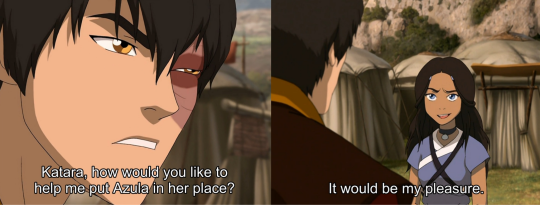
"Zuko would take a lightning for anyone–"
But Azula knew to aim at Katara.

"Zuko would take a lightning for anyone–"
But the scene was romamtically coded.
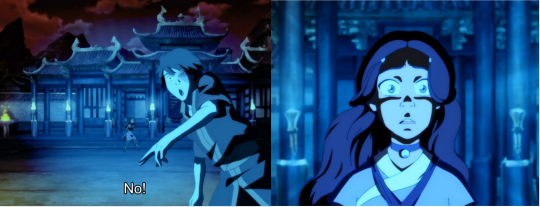
"Zuko would take a lightning for anyone–"
But Katara needed to get to heal him.
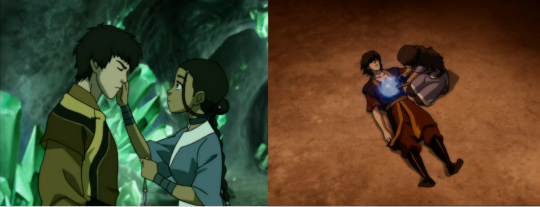
"Zuko would take a lightning for anyone–"
But it was Katara who was with him in season finales.
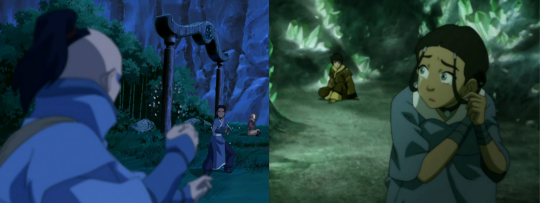
"Zuko would take a lightning for anyone–"
But he needed to choose Katara over Azula.

"Zuko would take a lightning for anyone–"
But Shu needed to survive in this life.
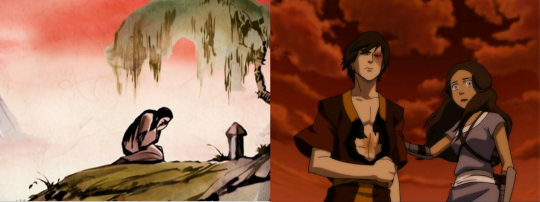
"Zuko would take a lightning for anyone–"
But the writers deliberately chose Katara.
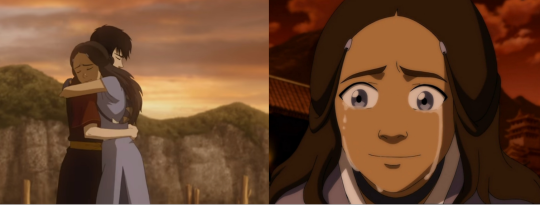
Inspired by @captain-konami-code 's "They were enemies"
#DISCLAIMER: I know this post isn't a full convincing argument. It's more for people who already agree.#it *definitely* falls under shitpost#zutara shitpost#<- the true nature of the post#zutara meta#<- for exposure#zutara#anti anti zutara#pro zutara#zuko x katara#katara x zuko#zukoxkatara#kataraxzuko#zutara analysis#zutara evidence#zutara forever#zutara nation#zutara was robbed#zutara supremacy#zutara should have been canon#atla critical#atla critisism#katara#zuko#prince zuko#katara of the southern water tribe
4K notes
·
View notes
Text
I actually like zutara as a concept, it's a ship I'll casually read fics about them sometimes.
it's just zutara fans are fucking delusional. Stop treating their Canon partners as abusive when it's the complete opposite. Especially Mai.
Aang isn't a misogynistic monk that forces katara to be his house wife. If he did katara would leave him in a millisecond. He actually cares so much about her. It's actually Canon HE cooks and accommodates his cultural food with kataras.
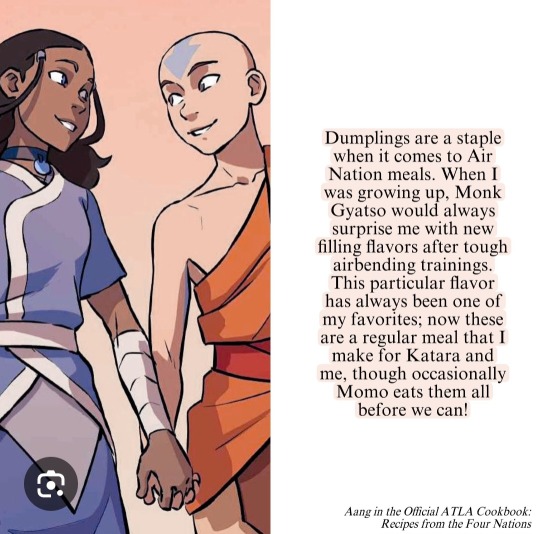
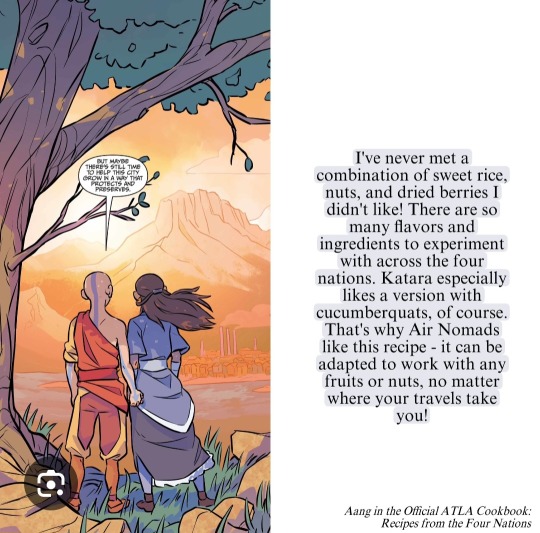
And Mai was literally ready to die for zuko. Even when they just broke up, she was ready to get electrocuted by azula if it wasn't for ty lee chi blocking azula.
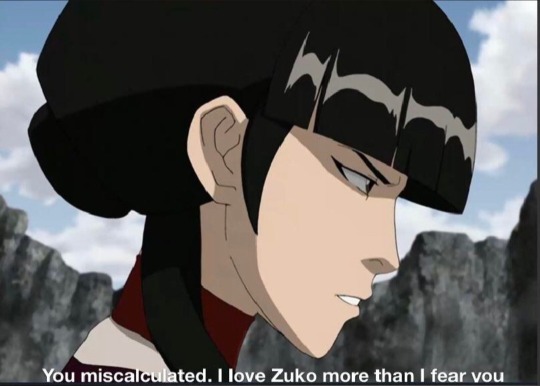
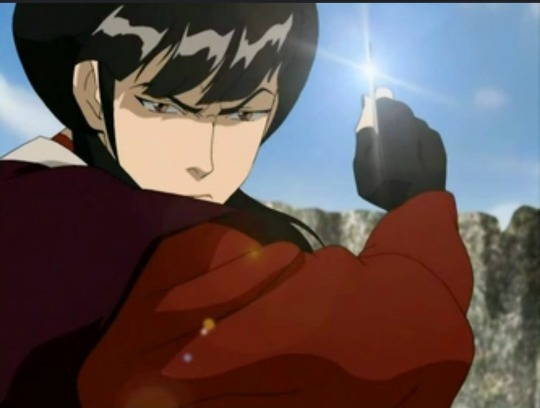
I'm aware it seems like she doesn't care about him the way she's quiet and aloof but I understand where she was coming as someone who somewhat has similar tendencies of being a little awkward when trying to show emotions and it coming off as being uncaring or rude. But at the end of the day she really shows she loves him, so people saying she's abusive is completely inaccurate to her character.
Her bottling up her emotions was taught by her parents as she explains in the beach episode somewhat where she had to worry about her father's reputation all the the time, forcing her to be quiet as a form of behaving.
Personally I think her quiet personality fits with Zukos loud ass, especially giving him a reality check during the beach episode calling him out for being angry all the time and how he needs to keep it in check.
Zutara is a nice ship I agree but you can ship it without mischaracterizing tf out of thier Canon partners.
#prince zuko#atla zuko#fire lord zuko#zuko#katara atla#katara avatar#katara#kataang#katara of the southern water tribe#mai atla#mai avatar#atla maiko#maiko#pro maiko#avatar aang#avatar: the last airbender#avatar#avatar the last airbender#atla#character analysis#shipping discourse
1K notes
·
View notes
Text
You know. I kinda feel the need to push back on the common claim that Ozai “pitted Zuko and Azula against each other” because it’s way more true that his intention was to make Azula feel superior through his approval and to make Zuko feel inferior through a lack of it. The whole thing with having a megalomaniacal parental abuser like this is that one child is the scapegoat while the other is the golden child. It’s horrific because it’s inescapable for either sibling. Azula has to be perfect because otherwise she will be treated like Zuko, this is something she basically says aloud in season three. Zuko knows that even when he returns to his father’s side and is in his father’s graces he will never be enough for Ozai, he will always be walking on thin ice until the day he makes a wrong step and it’s over for him. This could be anything from the day it is revealed that Zuko never killed the avatar to once again speaking out of turn. It is very obvious that there is never any authentic competition happening between these two from day one, even as they are both clearly being abused. Ozai’s abuse thrived on the appearance of pitting these two against each other as if they ever had equal chances of winning his preference between them. It was a losing game from the start, but Azula was more useful to him as a subordinate and Zuko was more useful to him removed from the picture.
354 notes
·
View notes
Note
In "Zuko Alone," I noticed that Ursa never calls Azula affectionately, unlike Zuko, whom she calls "darling". At the same time, Ozai calls Azula "my dear," but never calls Zuko that. I think this is interesting and shows which parent is closer to which child. What do you think about that?
Indeed, I've always thought it to be DELIBERATE that we see Ursa using affectionate language with Zuko and Ozai with Azula, but not the other way around.
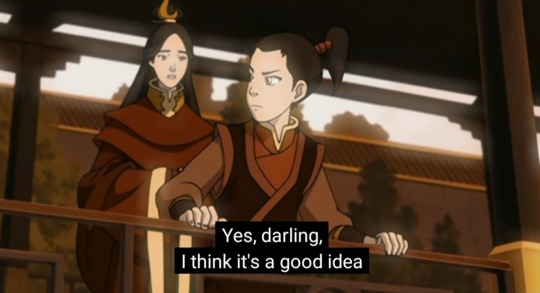
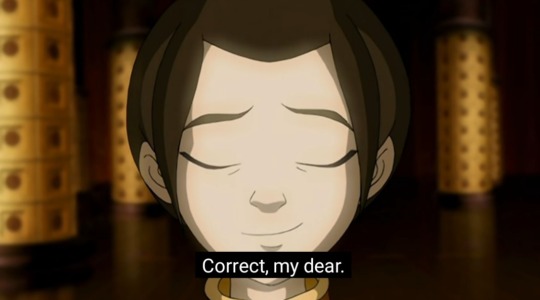
Ozai calls Azula "my dear", but whenever he addresses Zuko, he almost always calls him "prince Zuko". Ursa also takes a more official tone when addressing Azula, calling her "young lady".
We have no evidence of Ursa calling Azula endearingly on screen, but at the same time, I honestly don't think that she never did that with Azula.
What I personally think happened is that Ursa used to use affectionate language with Azula, when she was younger, just like Ozai used to do with Zuko, but with time, they both stopped, when Ozai started to see the sides of Zuko he didn't like and Ursa started to see the sides of Azula she didn't like.
I think this subtle characterization element in Zuko Alone shows which parent understands which child better. With Ozai, it's obvious that he started to resent Zuko, and with Ursa, I don't think she hated Azula, but she didn't understand her and started to instinctively keep distance from her, paying more attention to Zuko, which unfortunately, contributed to a horrible result for Azula in the end.
#atla#azula#ursa#ozai#asks#answering asks#meta#azula meta#fire nation royal family#avatar the last airbender#fire family headcanons#azula analysis#zuko alone
231 notes
·
View notes
Text
Katara and Mutuality in Relationships
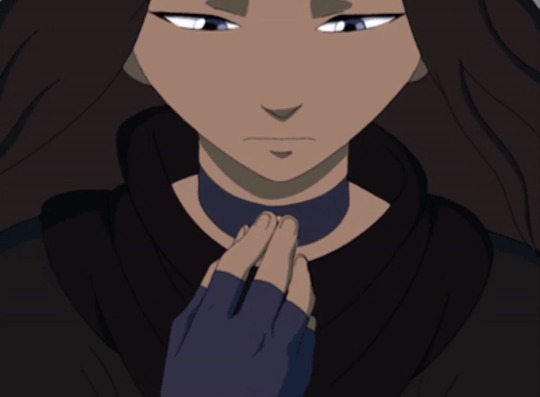
There are lots of conflicting opinions about which characters Katara felt attraction towards, which characters she didn’t, and how long she felt that attraction. I see in most cases, people point to quick clips of her faintly blushing or kissing another character on the cheek as evidence, but I think these kind of takes miss the nuance of the purpose attraction serves in a story.
Most importantly, I see these characters treated as if they are actually people capable of making their own decisions. It’s important to remember that these are fictional characters. They don’t make their own choices; the writers make their choices for them for the purpose of telling a story. From that standpoint, it’s more valuable to examine how a character’s story and narrative themes tie into their relationships with other characters. Animators can shove in a kiss or a blush wherever they want, but it’s harder to demonstrate through storytelling how and why two characters might feel attraction towards one another, and how a relationship between them would develop both characters and contribute to the overarching themes of the story.
In other words, when discussing which characters Katara is “attracted” to, I’m discussing which relationships and actions within the narrative build on her established story and arc. Romance is always integrated into a story for a reason, and considering that reason is important.
Unfortunately, ATLA is very much a product of its time in this way. It’s easy to see what romance adds to the arcs of the male characters—but not so much with the female characters. All three canon relationships (kataang, sukka, and maiko) follow this trend to some degree. The primary purpose of the woman in this narrative is to act as a prize for the man for performing some good deed. Once they’re together, she ceases having her own motivations and becomes an extension of the male character she’s dating. This is pretty blatant with Suki—she barely had a personality in that later seasons; she is there to be Sokka’s girlfriend. Similarly, Katara becomes a completely different character—she’s even animated differently—when the narrative pushes her into romantic scenes with Aang. Her character is flattened.
So what is Katara’s arc, and how do the romantic interactions she has throughout the series contribute to this?
Well, that could be a whole other essay itself, but to put it simply, Katara’s arc is one of a young girl devastated by grief at a young age clinging to hope that she has the power to fight and change the world for the better. Which she does as she gains power and confidence throughout the series—culminating in her defeating Azula in the finale.
But the part I want to focus on here is how Katara connects with other characters. She connects with them over shared experiences of grief and loss.
Take Haru, for instance.
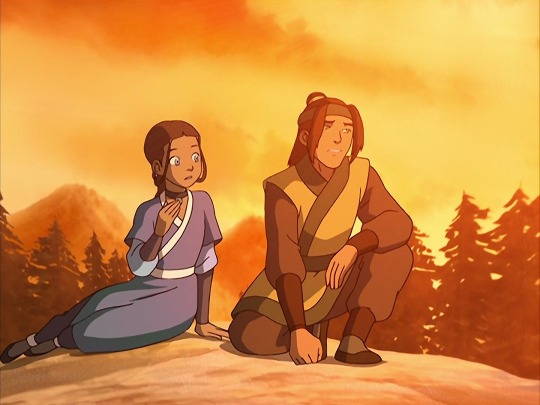
Haru: After the attack, they rounded up my father and every other earthbender, and took them away. We haven't seen them since.
Katara: So that's why you hide your earthbending.
Haru: Yeah. Problem is…the only way I can feel close to my father now is when I practice my bending. He taught me everything I know.
Katara: See this necklace? My mother gave it to me.
Haru: It’s beautiful.
Katara: I lost my mother in a Fire Nation raid. This necklace is all I have left of her.
Haru: It’s not enough, is it?
Katara: No.
This isn’t just a throwaway moment; it’s an important character moment that leads up to growth and the progression of Katara’s overall story, both in this individual episode and in the whole series.
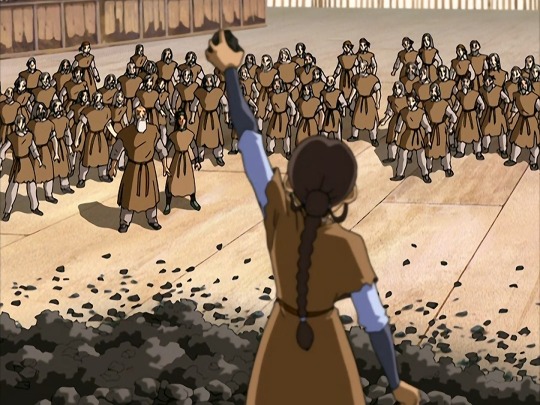
Katara finds her power in the connections she’s able to make with other characters. It’s a powerful driving force for her that makes her a strong character even before her bending abilities develop. Imprisoned was such an important episode to establish who Katara is and what her power is, and adds so much to her arc.
But there is one line in particular from the above exchange that also stands out: Haru says “it’s not enough, is it?” and Katara agrees. Even this early in the series, we’re establishing the fact that despite her drive and hopeful outlook, Katara feels deeply hurt, she feels a deep sense of loss that she opens up about to other characters in moments like these. But unlike Haru…Katara can’t go rescue her mother. Her mother is dead, and we see her grapple with that grief throughout the series.
Another character she reaches out to like this is Jet.
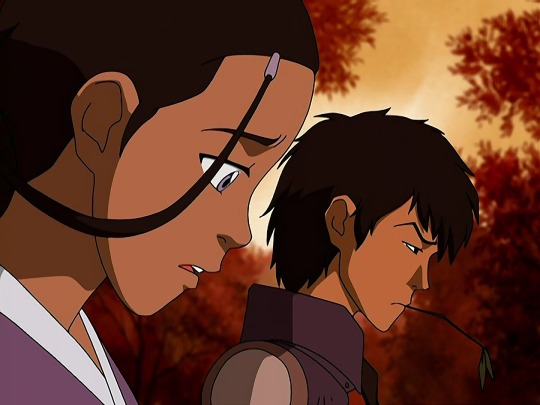
Jet: Longshot over there? His town got burned down by the Fire Nation. And we found The Duke trying to steal our food. I don't think he ever really had a home.
Katara: What about you?
Jet: The Fire Nation killed my parents. I was only eight years old. That day changed me forever.
Katara: Sokka and I lost our mother to the Fire Nation.
Jet: I’m so sorry, Katara.
Another important note about Jet is that there are explicit romantic feelings from Katara in this episode. Again, Katara empathizes with another character through a shared sense of loss. Sadly, in this case, Jet manipulated her feelings and tricked her into helping in his plot to flood the village…but those feelings were undeniably there.
That was the tragedy in this episode, but it also gives the audience so much information about Katara as a character: what motivates her, and what she wants. Katara is established as a character who wants someone who will connect with her and empathize with her over her loss—her greatest sense of trauma. She wants to help others but also receive support in return. The reason why she was smitten with Jet, beyond just initial attraction, is because he gave her a sense of that before Katara realized his true motivations.
A lot of people make the claim that Aang is good for Katara because he also feels a sense of great loss and trauma. And while on paper that’s true…does he really demonstrate that? I just gave two examples of characters Katara connected with this way, and both responded with deep empathy to what she said. Very early on in the show—the third episode—Katara attempts to connect with Aang the same way. How does he respond?
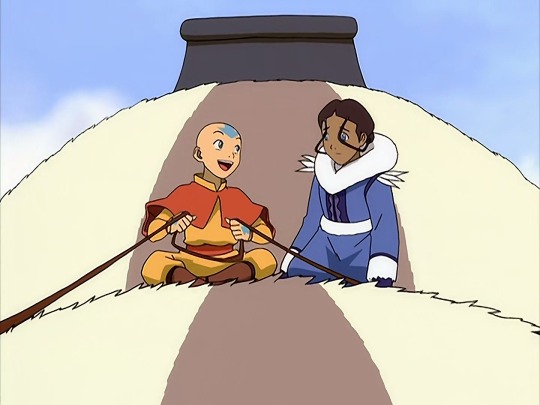
Katara: Aang, before we get to the temple, I want to talk to you about the airbenders.
Aang: What about 'em?
Katara: Well, I just want you to be prepared for what you might see. The Fire Nation is ruthless. They killed my mother, and they could have done the same to your people.
Aang: Just because no one has seen an airbender, doesn't mean the Fire Nation killed them all. They probably escaped!
Just compare this exchange to Haru and Jet. No effort to empathize, not even a “sorry for your loss” or anything. It’s a stark contrast, and the reason for that is because this narrative entirely centers Aang. Katara’s narrative always seems to be secondary to his when they’re together—which is exactly my point when I say this relationship has a fundamental lack of mutuality. It’s built that way from the beginning of the series. It does not add to Katara’s arc nor establish what about this dynamic would attract her.
And, look, before someone jumps down my throat about this…I’m not saying Aang is a horrible person for this response. I think it’s a sign that he’s immature and has a fundamentally different approach to problems than Katara. Katara is a character who has been forced to take on responsibilities beyond her years due to being a child of a war-torn world. Aang’s approach to problems is avoidance while Katara never had that luxury. It doesn’t mesh well.
This is all in Book 1. I honestly could have gotten on board with Kataang if the series meaningfully addressed these issues…but it didn’t. In fact, they actually got worse in some ways.
Back to Katara’s mother. We’ve established that this is a core part of Katara’s character and like in the scene with Haru, she indicates that this is an unresolved issue that pains her. But then, in Book 3, Katara actually does get a chance to confront this pain.
This would have been a powerful moment. Surely the character who is meant to be her partner, her equal, would have been there for her. Surely he would have understood and supported her, fulfilling her narrative and adding to her story.
But Aang didn’t do that. I won’t go into details because there are a million analyses out there on The Southern Raiders, but Aang’s response to Katara was the opposite of understanding. He got angry with her, insinuated that she was a monster for wanting revenge, and tried to dictate her behavior according to his own moral values. And importantly, from a narrative standpoint, he did not go with Katara. One of the most important events in her arc, and Aang didn’t support her—he actually tried stopping her. He didn’t contribute to her growth and development.
Also noteworthy:
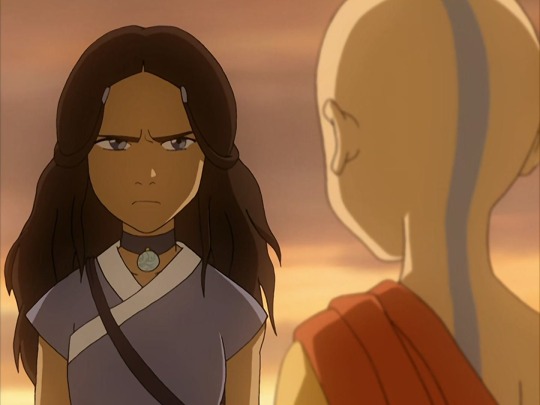
Katara: But I didn’t forgive him. I’ll never forgive him.
Even at the end of the episode, Aang clearly doesn’t understand at all what Katara is feeling. This line demonstrates it perfectly. He thinks she forgave him when that wasn’t the case at all…but of course, he didn’t even accompany her, so he didn’t see what actually took place. His worldview is fundamentally different from hers, and he’s consistently too rigid in his morality and immature to center Katara’s feelings.
Throughout Katara’s whole arc, her most significant character moments, Aang’s character just doesn’t come through the way Katara’s constantly does for him. Their narrative lacks mutuality. When Katara and Aang are together, she becomes an accessory to him. The ending scene is a perfect demonstration of this.
Now, to address the elephant in the room.
Which character does actually add to Katara’s narrative and support her growth as a character?
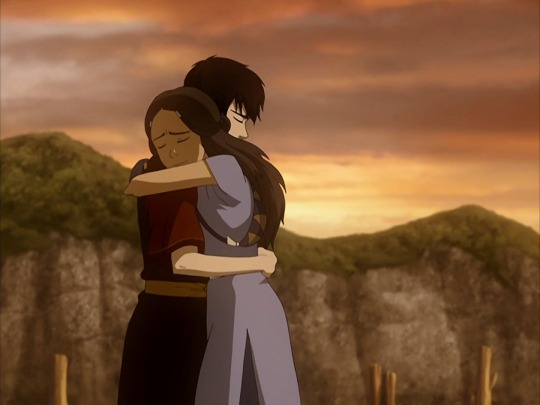
Correct! I just talked about how important The Southern Raiders is to Katara’s character and story, how it’s a chance for her to finally address the grief she’s been carrying since Book 1. And who stood by her side throughout this pivotal moment? Right—Zuko did.
You can talk all you want about how he’s a “colonizer” while Aang’s people suffered genocide, but you’re forgetting that “show, don’t tell” is one of the most basic aspects of storytelling. The fact is, despite how it looks on paper, Zuko was the one there for Katara at her critical moments. Zuko empathized with Katara more than Aang ever did—as demonstrated in this episode. Zuko never once brought up his own cultural values. Zuko never once told Katara what to do. Zuko’s position was that Katara should be the one to decide, and that he would support any choice she made. He supported her decision to spare Yon Rha, but he would have also supported her if she decided to kill him. I actually found this episode to be a satisfying reversal to what is typically seen in TV—for once, the female character is centered while her male counterpart takes the backseat and becomes a supporting role to her narrative.
Even before this, Zuko is shown to empathize with Katara.
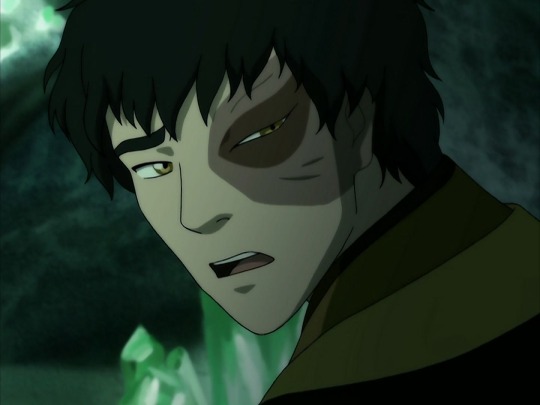
Zuko: I’m sorry. That’s something we have in common.
I think what gets me about this scene is the fact that he’s still Katara’s enemy, and she was just yelling about how she hates him and his people. But despite that, Zuko still empathizes with Katara. She is fundamentally human to him, and he expresses that to her in a way that allows them to connect. Zuko stands to gain nothing from this. It’s true that Azula entered the picture and twisted things around—but in this moment, Zuko’s compassion is genuine. His instinct was to respond to her grief with empathy, just like she consistently does for other characters.
And finally, how else does Zuko add to Katara’s arc?
I don’t think there is any more perfect of an example than the finale itself—the culmination of the arcs and development of all characters.
Zuko and Katara fight together. In a heartbeat, Zuko asks Katara to fight by his side against Azula, because he trusts her strength. She’s his equal—both in his mind, and in a narrative sense.
Then, this:
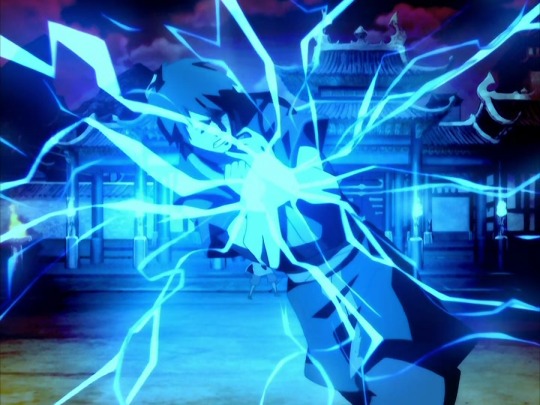
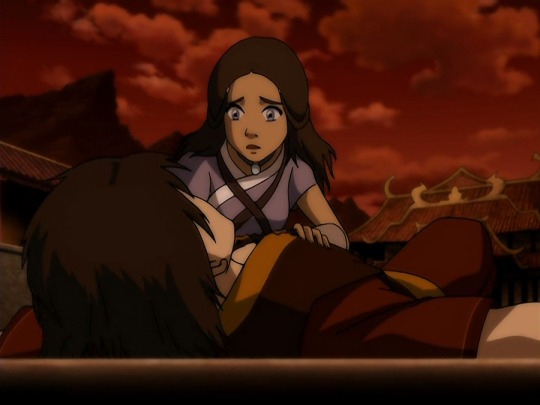
Both of their roles are so critical in this fight. They both save each other. The scene has such raw emotion to it. These characters were together at the conclusion of their respective arcs for a reason.
This is the perfect conclusion to Katara’s arc. She just played a critical role in ending the war that has caused her trauma her whole life. She just demonstrated her mastery of waterbending (another thing she’s dreamed of throughout the series) by defeating the world’s most powerful firebender during Sozin’s Comet. Even though she had help as all characters do, these are victories that belong to her and demonstrate the growth and power of her character. And to top it all off? She was able to save Zuko’s life. She didn’t have to endure the pain of feeling helpless to do anything while someone else died for her; this time, she had an active role, she changed her fate, and she prevailed. Zuko plays an important role in Katara’s story without dominating it. They perfectly represent mutuality. They add to each other’s stories. Their narratives become stronger when they’re together, without one diminishing or sidelining the other.
So, from that standpoint, that’s why I always see the attraction between Zuko and Katara and why I see it lacking between Aang and Katara. Zuko and Katara’s story doesn’t need some cheap little throwaway moments to shine. It’s integral to both characters’ stories. We are shown not told of the way these characters feel about each other. Given everything we know about Katara, her goals, her values, her past loves…absolutely everything points to Zuko being the true subject of her feelings.
Because let’s be honest. The ending I just described is so much more powerful and so much more Katara than seeing her being relegated back to a doe-eyed love interest for Aang to kiss. It hardly even made sense—Katara played no role at all at the culmination of Aang’s arc. She was relegated back to a love interest, rather than the powerful figure we saw fight alongside Zuko.
#zutara#katara#zuko#atla#anti kataang#canon critical#jet#haru#katara deserved better#aang critical#meta#analysis
717 notes
·
View notes
Text
the southern raiders & misplaced anger
Saw people being weird about the Southern Raiders episode again, and I started a long response but it was sooooooo long, I thought I should just make a separate post.
Here’s the thing: the Southern Raiders episode is about two things - on the surface it’s about Zuko, Katara, and misplaced anger. Thematically, though, this episode is about forgiveness and negotiating where forgiveness fits into the overturning of oppressive regimes.
I’m just here to talk surface level today. Maybe one day I’ll delve into the thematic stuff (which I think is also so well done). What’s brilliant about this episode is that even the surface level hits more than just the surface - it’s complex, filled with a lot of subtext. Recently I saw someone lament that it’s weird that this episode seems to reinforce the idea that Katara blames Zuko because of her mom’s death - but this reading of the episode really takes things at face value, and I think we need to look deeper than that.
What always strikes me about this episode is that before it happens, the audience sort of assumes that Katara is angry at Zuko because his actions caused a lot of harm to Aang. But once we get to her confrontation with Zuko, she names the source of her anger as something different: I was the first person to trust you, she says, and you turned around and betrayed me. This is the first thing she says to Zuko that makes an impression on him likely because it feels like the first real thing she says to him about her anger, beyond just aggressively taunting.
But it’s also…ridiculous. He “betrayed” her?? They had no agreement, no alliance! He chose his sister over some random girl he had one conversation with, an action that, as smart as we’ve seen Katara be, shouldn’t have been all that surprising to her. I think the wording here is very important that she trusted him and he betrayed her, because it should set off some alarm bells in your head, the absurdity of the accusation. And it points to the truth: Katara is directing her anger at Zuko, sure, but who is she really mad at?
It has to be herself. She trusted Zuko, like an idiot, and then Zuko almost got Aang killed. That’s why, for the first time in the show, her anger spins her so out of control. Because she’s not putting the anger in the right direction, not working through it. Anger has a very interesting role in ATLA because the show never really suggests that anger, at its core, is a bad thing, which is a radical position for a kids show in 2005. Katara is the best evidence of this, since her anger 99% of the time is a life giving force interconnected with her hopefulness; the show celebrates her anger more often than it punishes it. But in TSR, her anger is killing her because it’s different than usual. It’s tied up her guilt, and instead of feeling it and working through it, she’s just pushing it on someone else.
It’s also telling and important that Katara starts blaming Zuko for her mom’s death. Again, this is misplaced, but it’s no wonder she would be thinking about her mom in the wake of her renewed guilt over what happened to Aang. Her mom, after all, also died because of her.
This is the crux of the episode: Katara feels intense guilt and anger over her mother, and she places it all on Zuko because let’s be honest - she blames herself for all of this, and it all ends up tied together, her guilt her anger. I have no doubt that the person she’s most angry at is herself, unable to do anything to save her mother. And then years later she turns around and trusts ZUKO, of all people - how stupid was that? I mean just LOOK at the way that Katara had spent years turning herself into a caretaker for everyone around her. At first this just seems like a trauma response to losing her mom at a young age - but once we know that her mom died to protect Katara, died in her PLACE - it becomes clear, to me anyway, that Katara making herself into a caretaker at 14 is wrapped up in her guilt and anger over her mom. It’s a punishment, in many ways; she has to take over her mom’s role because her mom died in her place.
Perhaps the final sort of evidence for me that Katara is actually mad at herself in this episode is that Zuko, king of self-loathing, becomes her mirror, her sounding board in this episode. People like to argue that Zuko takes Katara down a “dark path,” but he seems to me more like a beacon in the midst of her turmoil. Placing him next to her, it’s a poke to the audience. Remember? Zuko said not so many episodes ago that he was mad at himself. By the time he joins the gaang, his anger has clearly been redirected at his father; it’s closer now to the anger that Katara most often feels, that hopeful, life giving anger. And allowing Zuko to guide her through this side quest is a reassurance: Katara will work through her anger too.
At the end of the episode, Katara says she’s ready to forgive Zuko. I think this is why people take at face value that she was genuinely angry with him, that her anger at him was a pure expression of her rage and hurt and not a muddied one. But I’d argue that her verbal forgiveness of him isn’t about his “betrayal,” it’s about the themes of the episode - she’ll probably never forgive Yon Rha, she says, a vow to remember the wrongs done in the past - but by forgiving Zuko, she’s saying that she’s willing to collaborate for a better Fire Nation of the future, a more just world. And now that she’s been able to confront and work through her anger at herself, she’s in a balanced place to do so.
Honestly, I think if the true source of Katara’s l anger about all this really was Zuko, they wouldn’t have the relationship that they do by the end of the show. They clearly really trust each other and care about each other by the end, and I think that if Katara really felt betrayed like she says, she would have held back her heart a little bit, keeping them at allies but never quite friends.
And ya know what? This is one of those episodes of ATLA that refuses to spoon feed you the answers, which I really like. It offers a lot of subtext for good, old fashioned analysis and argument, and it’s why it’s one of my favorite episodes - plus it’s an episode that REALLY brilliantly puts the focus on Katara and complicates her character, and I love that.
#katara#zuko#atla#atla analysis#the southern raiders#I just have a LOT of thoughts about this episode because I think it’s so well done#There’s like ONE line I would have changed because I think it undercuts the epsiode#But I just ignore that line and it’s all good hahaha
179 notes
·
View notes
Text
Tbh I think the thing that most ruins this episode for me is that one old man insulting Zuko in a way that makes him sound unreasonable and cruel, just on the basis of Zuko having been maimed and disowned by his father, because although the episode wasn't about Zuko seeing how Fire Nation soldiers mistreat and abuse Earth Kingdom people, it could've still taught another lesson; One about the savior complexes of colonizing nations born from a belief of their own superiority in comparison to cultures and nations they see as inferior.
Zuko there thought himself a hero, saving these poor Earth villagers from their corrupt superiors, saving them from themselves. He proudly proclaims himself the heir to the Fire Nation throne (son of a man who in this very episode was shown to have no qualms about killing his own son for power) ...and then the Earth Kingdom villagers tell him to gtfo. Lmao.
And I see some people here on social media just... not getting it. Calling the villagers ungrateful, saying they're mean for shunning someone who "saved them". But this is no salvation.
This is like when a gringo starts getting too comfortable talking about brazilian politics and societal problems to the point you get the feeling they'd be very happy to support another coup. It's horrible.
Just a few months ago when twitter was temporarily banned in my country, we had El*n M*sk trying to pull that crap. Trying to claim we Brazilians "have no freedom" and that we are a poor poor people being suppressed and censored by our government that clearly needs the help from the likes of him, and here's the thing; the only people who agreed with him were the ones who want a dictatorship. No one else was fucking grateful. There's no normal response to this kind of crap besides "No, no, we're good. We don't need you and we don't want you, because we hate you more than anything. Please go fuck yourself somewhere else and maybe fall down a flight of stairs while you're at it".
And I can see people objecting to this comparison, saying "But Zuko actually meant it!" or "But Zuko is an exiled teenager, not a rich man in power!", but here's the thing: Zuko wants to be, and he wants that power, and that is how Zuko presented himself to these people, as the colonizing prince come to save the poor and helpless Earth Kingdom citizens from themselves, you know, by toppling their current leadership. Yeah.
So of course they don't want anything from Zuko, of course they want him gone, and of course they hate him. It doesn't matter how bad they have it with the soldiers, because to them in this scenario Zuko is the bigger threat, the greater of two evils, the prince from the imperialist nation that brought them to this situation in the first place, a nation that has tormented them for over a 100 years, here coming with the same old excuse that that their torment and their subjugation is being done "to their own good". So of course they don't appreciate his damn help.
Remember how at the end of the season, Azula takes control of Ba Sing Se (with the help of Zuko), and it is a Tragedy. It is framed as a tragedy, a poison, a violation. These people weren't "saved" from their corrupt government, they were just made more powerless and lost than ever.
So yeah, I believe that if this episode had come with just a bit of a different angle, some different framing, focused a little bit less on being a Zuko pity party, it could've been really great.
The fact that Zuko Alone doesn't have Zuko defend the villagers against corrupt Fire Nation troops is both one of the biggest missed opportunities ever and also one of the weirdest ones. Like, they could have written as a moment where Zuko starts to empathize with ordinary EK people and comes to term with the harm that the FN is causing to their lives. Instead, Zuko is faced with a situation where corrupt and evil EK authorities are abusing ordinary EK people, which is probably exactly the same narrative he's been learning from FN propaganda about the EK his entire life.
#Of course that people like that old man exist#they exist everwhere#but was it really such a good idea to have this Here#in This episode#In This context?#atla#zuko#atla analysis#zuko analysis#anyway it's a bit unclear how much Zuko internalized this lesson#when he confronts his father it seems he got it#but some episodes later he seems ofter confused about the gratity of his past actions
106 notes
·
View notes
Text
I don't know if people have already pointed this out but people really underestimate ozai's capabilities. Sure it's funny to be like haha he's so pathetic but.
When zuko stands up to ozai on the day of the eclipse
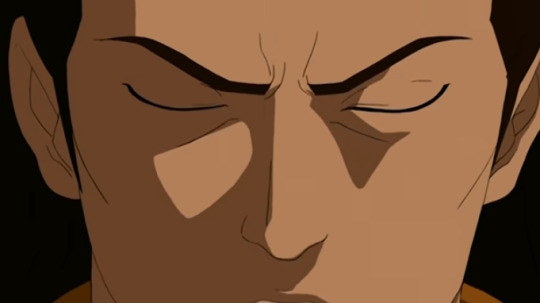
He is not only able to sense the sun while underground,
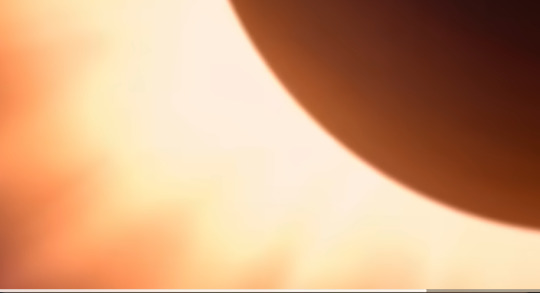
He is able to use that sliver of sunlight to generate lightning, a pretty intense bolt too
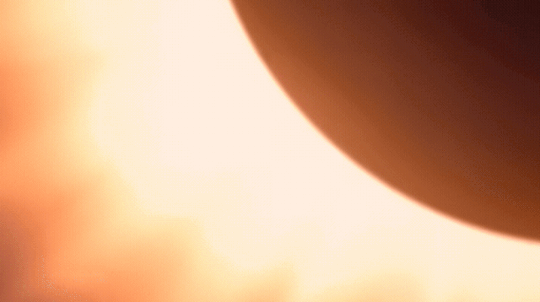
Also, he is able to do this far quicker than any of the firebenders we see on the show

Azula, for example ^
also, he is extremely proficient with regular firebending as well:

This is him while being powered by sozins comet, but he is able to cover a vast area of land, that too from a considerable height (this scene makes me extremely sad, imagine all the plants and animals, also, the amount of vengeful spirits even after the war)
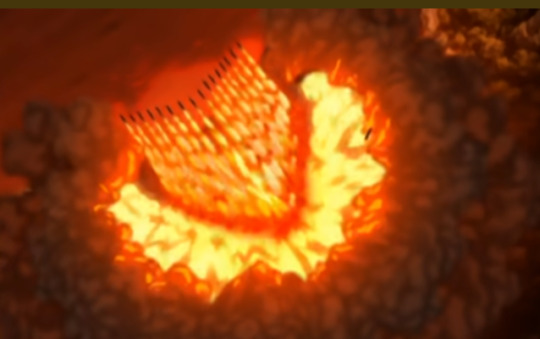
Compared to the fire nation soldiers, also powered by the comet, covering the (roughly) same amount of area, but requiring 16 individual streams of fire (is that the correct term? Idk)
In conclusion: thank you aang for taking away his bending 🙏🏽
#atla#ozai#azula#avatar the last airbender#sozins comet#firebending#lightning bending#the last two pictures are very upsetting to me#atla analysis#P.s: this is not an ozai glazing post#it is not trying to be#I just wanted to point out the insane feats of firebending he showcases in the show#and how incredible it is that both zuko and aang was able to stand against him
94 notes
·
View notes
Text
Excuse my Zutara fangirlism but I’m on my hundredth ATLA rewatch and I just noticed another one of those scenes that could have made for PERFECT foreshadowing… it’s really crazy how this ship wrote itself in the show!
Anyways notice how Katara reacts to Jet seemingly wanting to join the gaang and Toph calling her out on it:
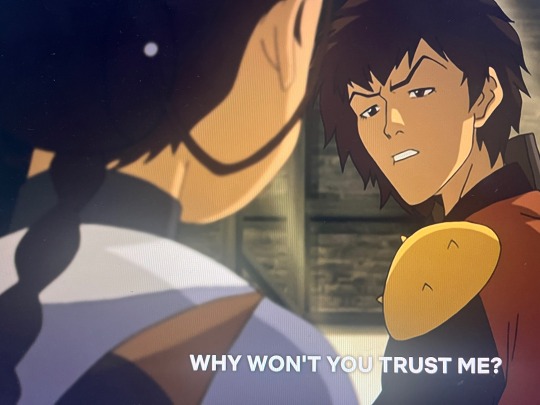

(Excuse the bad quality Netflix didn’t allow me to take screenshots bahah)
And then:
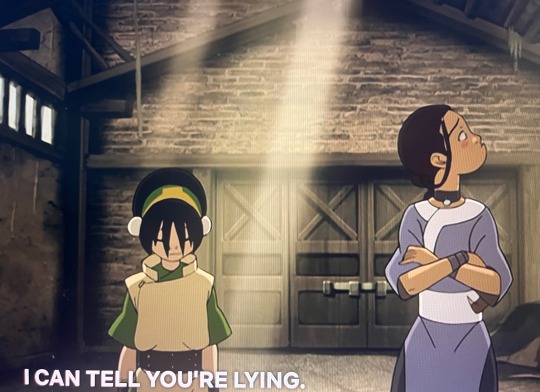
She’s blushing because she obviously had feelings for Jet, a canonical love interest of hers.
But doesn’t this scene strike you as familiar in any way…..?
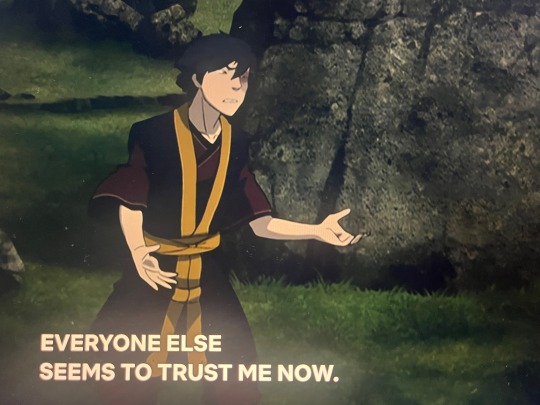

She reacted the same way with Zuko, these scenes are so identical it’s INSANE! The subtext!! *screams*

But this time Zuko is genuine and works to gain her trust back!! And then we see him risk his life for her like a couple episodes later…. AHHHHH
How are they not a canon couple again??
#zutara#Zuko x Katara#Prince Zuko#Zuko atla#Katara#katara of the southern water tribe#jet atla#zutara analysis#this ship has me in its shackles like please release me!#atla#avatar the last airbender#netflix avatar#avatar live action#natla#rambles#also the fact Jet and Zuko have similar vibes… Katara I know you was crushing baddd#Bryke tried to silence you but I know the truth#jet
706 notes
·
View notes
Text
I’m rewatching atla for the seventh time since June (blame the hyperfixation ok) and I’ve noticed something in the fifteenth episode of season 1 when Zuko arrives at Aunt Wu’s village
in season 1, every villagers, every citizens he encounters are always (rightfully) scared of him and his firebenders
every single one
except Aunt Wu
and since she read Aang’s future one episode prior to that, I always wonder if maybe Aunt Wu saw Zuko in Aang’s future, given how she was capable of seeing exactly how his destiny would look like (and we know how Aang and Zuko’s destiny are interlinked)
you can see that Aunt Wu is not even worried about Zuko’s presence in her village, she’s not even shocked. she just pensively looks at him, without saying anything.
and I think that it would so damn cool if she knew that their destiny are interlinked and that could explain why she wasn’t worried about his presence in her village.
Aang & Zuko never beating the platonic soulmates allegations I’m afraid.
#this is purely a headcanon#but I’m soooo obsessed with Aang & Zuko parallels in atla#these mf dream about each others LIKE COME ON#I could also do an analysis on Aang’s dream in season 3 featuring Zuko in his Agni Kai’s outfit#uuuughhh#platonic soulmates#in every damn universe I’m afraid#atla#avatar the last airbender#aang#avatar aang#avatar the last airbender zuko#atla headcanons#avatar the last airbender aang#zukaang#platonic zukaang
230 notes
·
View notes
Text
Azula would have lost the Final Agni Kai no matter what. Here's why:
Azula is insecure. That's why she takes cheap shots. She did it with Katara, and she did it with Aang in CoD, AND she did it with Iroh striking him with lightning. One could even argue that her behavior in CoD foreshadows some of what happens in the Agni Kai, where in CoD, Katara fights Azula, and Zuko saves her, whereas in the Final Agni Kai, Zuko fights Azula and saves Katara. It's a little mismatch of dynamics.
Azula cheating (constantly), is a staple of dishonorable behavior, which I think is interesting.
We see her "play with her food" like a cat, with the Dai Lee and other opponents she encounters. She tricks them and manipulates them and there's no threat. Killing Aang with lightning was SUPREMELY stupid on her part, and she wouldn't have done it unless she was cornered. She didn't even stick around to make sure he was dead or have any of them followed-- because she was scared. Zuko NEVER flees in fights out of fear. He doubles down like a lunatic and tries to get himself killed instead. Azula is not willing to risk her life, and that's why she's a worse fighter. The insecurity gets to her head and she psychs herself out
Azula has a lot of fire power (lol), but Zuko has the heart and commitment to see actions through to the end. That's why he would have won, had Azula not cheated.
By the end, they were evenly matched in firepower anyway. They did the Raging Line of Flames Competing Colors thing and met in the middle, and stayed there. That's how animation tells us about their ability.
Azula's seat of power in her firebending is spite and fear. She's not even mad, bro.
Zuko's seat of power, at the end, is light and life and love. One is a powder keg that runs out after you blow it up once, and the other is like an oil fire in a parking lot. There's essentially infinite fuel there.
Zuko would have certainly outlasted her. And did, if you think about it. Because she panicked.
Azula's entire persona is a mask, just as Zuko's bravado and pettiness in the first season was a mask. (Funny, that he can only be himself when he's hidden the scar with the blue spirit mask, therefore freeing himself of the shame and the mark that brands him as a villain)
They show us that Azula's mask is not only slipping, but cracking, crumbling in the mirror scene. That's why it's there: to show the audience that all of her running has finally caught up with her.
This world that Azula created has been a sham from the beginning. Castles in the sky to make up for what she lacks: love.
Which is why she would never win against Zuko if they both reached their full potential, as they did during the comet.
#zuko#azula#this is to address some 'zuko is a worse firebender at the end still and never mastered firebending because azula js more powerful than him'#nonesense that we are seeing in the azula stan tumblr rabbit hole#y'all lost the plot fellas#azula is a tragic heroine or whatever in your hc but she's really just a sympathetic villain destined to fail from the beginning#her foundations are shit#she's completely unsustainable and working on borrowed time#and SHE KNOWS IT#because her worth is rooted in the percieved approval of her father#she could never stand alone#azula critical#i wont say it's an anti post because its not#its just analysis and thoughts and if that bothers you get off the internet and read a book thanks#atla#AT:LA#avatar the last airbender
157 notes
·
View notes